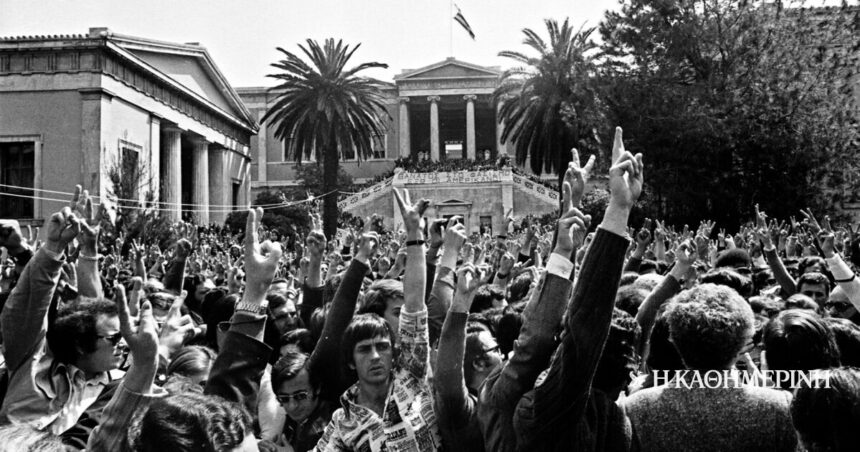After fifty years it seems extremely obvious. The Government of National Unity, under Konstantinos Karamanlis, set the elections to be held on November 17, 1974 in a move of high symbolism: the transition to Democracy to be sealed through reference to the peak moment of the anti-dictatorship struggle. Moreover, this line of reasoning fits with the modern enshrinement in the public sphere of the reformist form of Karamanlis. Except there is one crucial detail. If we trust the publication of the Constantinos Karamanlis Foundation – which is based on his archive – he never made the connection that we today take for granted. Probably the opposite. Karamanlis wanted the elections to be held on November 3 or 10 (and only because Mavros would be away abroad, the cabinet ended up on the 17th), while afterwards in his successive speeches and in his televised speeches, he never mentioned the Polytechnic. Neither the day before the election, nor the day of the election, nor the day after.
If we don’t consider this a detail, then we can rethink the transition to democracy. Karamanlis made radical cuts – with that of the legalization of communism standing out – but these were not exclusively the product of a revision of his perspective that took place under the overwhelming weight of the experience of the dictatorship. They arose, at the same time, through the reasonable insecurity in the conditions of the transition for the unpredictable dynamics of democratization, which threatened any scenario of restoration of the pre-dictatorial order with the exclusions of the post-gender state. From this point of view, his silence around the Polytechnic contains an explicit message: The priority in shaping the new landscape would be given to the legally elected government and the political parties that participated in the elections and not to the “extremisms” that, as he noted in his televised message to young people, were an imitation of “outdated” European trends. If May 1968 was the time of barricades, June 1968 – with the emphatic dominance of de Gaulle – was the response of liberal democracy.
His (Karamanli’s) silence around the Polytechnic contains a message: The legitimately elected government and the parties that participated in the elections would have priority in shaping the new landscape; not the “extremisms”.
The primacy of the political – in the sense of the parties and their protagonists – is the dominant way of analyzing the history of the Post-colonialism. It is as if everything that happens results from political initiatives and social dynamics are simply their reflection. There is a reason this happens. In the Greek 20th century, a constant was the subordination of the social to the political. State paternalism, the control of institutions such as the trade union movement by the state and the parties, the general suspicion or even the suppression of the autonomy of social movements form a continuum that starts with Venizelism at the beginning of the century and reaches up to the experience of PASOK in the 1980s. The 17th of November itself, as the anniversary of an uprising, brought this route: From its postponement in 1974 through the holding of elections that day in the name of political stabilization, to its transformation into a school holiday around – once again – the idea of national unity.
Obviously the story of the Greek transition was a story “from above”. Any comparison with revolutionary Portugal makes things obvious. Here, the collapse of the dictatorship comes through a national – and not a social – crisis, the handover of power is from the “soldiers” to the “politicians”, its protagonists themselves are not yet the new faces of the anti-dictatorship struggle, but the players of the old political world. However, this fact does not negate the dynamics of “extremism” – that is, what happens “from below”. The massive demonstration for the Polytechnic on November 24, 1974 was a historic event. And in a way it ushered in the next phase of Postcolonialism through the development of radical criticism of the controlled transition and the demand to extend and deepen the process of democratization – in universities and schools, in the workplace, in the institutions and mechanisms of the Greek state . It was the point at which, after the stabilization of democracy, the great debate about its content began. A debate that – for better or for worse – continues to this day.
Mr. Kostis Karpozilos is a historian.




